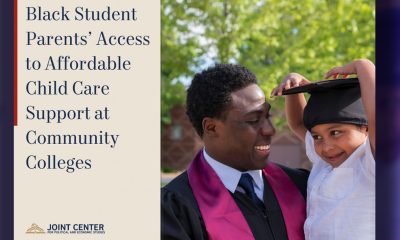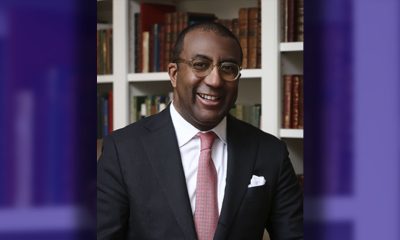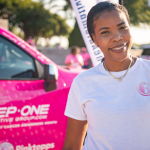Family
Waka Flocka says friendship is key to a successful marriage
ROLLINGOUT.COM — Waka Flocka and Tammy Rivera recently celebrated their fifth wedding anniversary at the beginning of 2019.
By Christal Jordan
Waka Flocka and Tammy Rivera recently celebrated their fifth wedding anniversary at the beginning of 2019. Although the couple has gone through some heartbreaking issues including an almost yearlong separation, Waka says there was never a time that he couldn’t see himself with his wife.

[/media-credit] Christal Jordan
“When Tammy left I couldn’t eat, couldn’t sleep, I didn’t want to do anything,” he says. After Tammy discovered Waka had been unfaithful she broke things off with him and planned to move on with her life.
“I loved him but I just couldn’t take anymore. I was done,” Tammy says.
Waka says he never intended to give up on his family and knew he would eventually win his wife’s heart back. “I could live without her as my girl but I couldn’t live without her as my best friend. When she cut that off it really messed me up. At first I thought she wasn’t gonna cut me all the way off — but when she did, it threw me off,” he sys.
“Tammy is my best friend as long as it’s the two of us I’m good. Before she and I got together I never even listened to love songs. After we separated and got back together, I started listening to R&B and understanding the lyrics and everything,” he laughs.
The friendship element took their relationship to the next level and it’s allowed the two of them to fix their issues and continue to work on their marriage every day.
“We go through it but when you are with your soulmate and that’s your best friend it makes everything worth it. You can get through a lot more with someone that is really your best friend as opposed to someone you are just with for the sake of being in a relationship,” Tammy says.
Waka and Tammy are on WE tv’s “Marriage Boot Camp: Hip Hop Edition” which airs Thursdays at 10 p.m. EST.
Activism
Report Offers Policies, Ideas to Improve the Workplace Experiences of Black Women in California
The “Invisible Labor, Visible Struggles: The Intersection of Race, Gender, and Workplace Equity for Black Women in California” report by the California Black Women’s Collective Empowerment Institute (CBWCEI), unveiled the findings of a December 2024 survey of 452 employed Black women across the Golden State. Three-fifths of the participants said they experienced racism or discrimination last year and 57% of the unfair treatment was related to incidents at work.

By McKenzie Jackson, California Black Media
Backed by data, a report released last month details the numerous hurdles Black women in the Golden State must overcome to effectively contribute and succeed in the workplace.
The “Invisible Labor, Visible Struggles: The Intersection of Race, Gender, and Workplace Equity for Black Women in California” report by the California Black Women’s Collective Empowerment Institute (CBWCEI), unveiled the findings of a December 2024 survey of 452 employed Black women across the Golden State. Three-fifths of the participants said they experienced racism or discrimination last year and 57% of the unfair treatment was related to incidents at work.
CBWCEI President and CEO Kellie Todd Griffin said Black women have been the backbone of communities, industries, and movements but are still overlooked, underpaid, and undervalued at work.
“The data is clear,” she explained. “Systemic racism and sexism are not just historical injustices. They are active forces shaping the workplace experiences of Black women today. This report is a call to action. it demands intentional polices, corporate accountability, and systemic changes.”
The 16-page study, conducted by the public opinion research and strategic consulting firm EVITARUS, showcases the lived workplace experiences of Black women, many who say they are stuck in the crosshairs of discrimination based on gender and race which hinders their work opportunities, advancements, and aspirations, according to the report’s authors, Todd Griffin and CBWCEI researcher Dr. Sharon Uche.
“We wanted to look at how Black women are experiencing the workplace where there are systematic barriers,” Todd Griffin told the media during a press conference co-hosted by Ethnic Media Services and California Black Media. “This report is focused on the invisible labor struggles of Black women throughout California.”
The aspects of the workplace most important to Black women, according to those surveyed, are salary or wage, benefits, and job security.
However, only 21% of the survey’s respondents felt they had strong chances for career advancement into the executive or senior leadership ranks in California’s job market; 49% felt passed over, excluded from, or marginalized at work; and 48% felt their accomplishments at work were undervalued. Thirty-eight percent said they had been thought of as the stereotypical “angry Black woman” at work, and 42% said workplace racism or discrimination effected their physical or mental health.
“These sentiments play a factor in contributing to a workplace that is unsafe and not equitable for Black women in California,” the report reads.
Most Black women said providing for their families and personal fulfillment motivated them to show up to work daily, while 38% said they were dissatisfied in their current job with salary, supervisors, and work environment being the top sources of their discontent.
When asked if they agree or disagree with a statement about their workplace 58% of Black women said they feel supported at work, while 52% said their contributions are acknowledged. Forty-nine percent said they felt empowered.
Uche said Black women are paid $54,000 annually on average — including Black single mothers, who averaged $50,000 — while White men earn an average of $90,000 each year.
“More than half of Black families in California are led by single Black women,” said Uche, who added that the pay gap between Black women and White men isn’t forecasted to close until 2121.
Bay Area
Five Years After COVID-19 Began, a Struggling Child Care Workforce Faces New Threats
Five years ago, as COVID-19 lockdowns and school closures began, most early educators continued to work in person, risking their own health and that of their families. “Early educators were called essential, but they weren’t provided with the personal protective equipment they needed to stay safe,” said CSCCE Executive Director Lea Austin. “There were no special shopping hours or ways for them to access safety materials in those early and scary months of the pandemic, leaving them to compete with other shoppers. One state even advised them to wear trash bags if they couldn’t find PPE.”
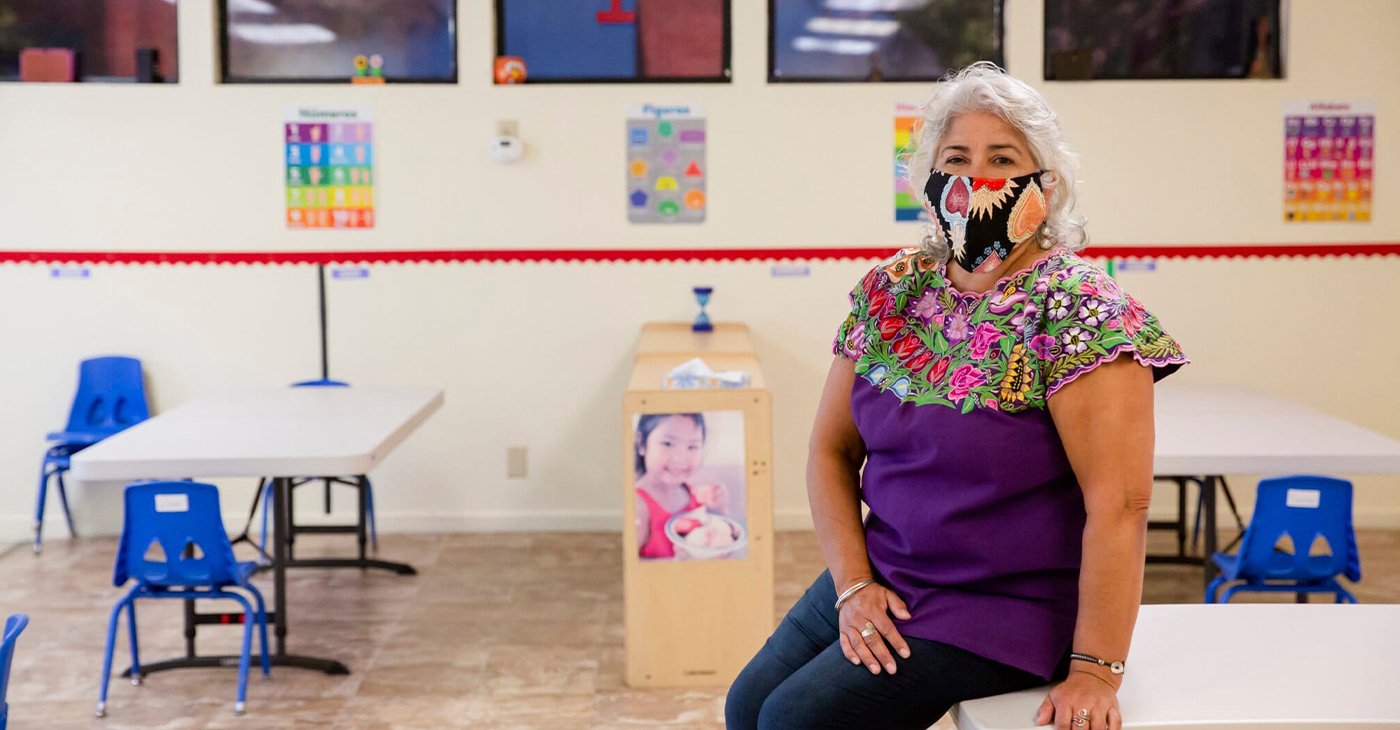
UC Berkeley News
In the first eight months of the COVID-19 pandemic alone, 166,000 childcare jobs were lost across the nation. Significant recovery didn’t begin until the advent of American Rescue Plan Act (ARPA) Child Care Stabilization funds in April 2021.
Today, child care employment is back to slightly above pre-pandemic levels, but job growth has remained sluggish at 1.4% since ARPA funding allocations ended in October 2023, according to analysis by the Center for the Study of Child Care Employment (CSCCE) at UC Berkeley. In the last six months, childcare employment has hovered around 1.1 million.
Yet more than two million American parents report job changes due to problems accessing child care. Why does the childcare sector continue to face a workforce crisis that has predated the pandemic? Inadequate compensation drives high turnover rates and workforce shortages that predate the pandemic. Early childhood educators are skilled professionals; many have more than 15 years of experience and a college degree, but their compensation does not reflect their expertise. The national median hourly wage is $13.07, and only a small proportion of early educators receive benefits.
And now a new round of challenges is about to hit childcare. The low wages paid in early care and education result in 43% of early educator families depending on at least one public support program, such as Medicaid or food stamps, both of which are threatened by potential federal funding cuts. Job numbers will likely fall as many early childhood educators need to find jobs with healthcare benefits or better pay.
In addition, one in five child care workers are immigrants, and executive orders driving deportation and ICE raids will further devastate the entire early care and education system. These stresses are part of the historical lack of respect the workforce faces, despite all they contribute to children, families, and the economy.
Five years ago, as COVID-19 lockdowns and school closures began, most early educators continued to work in person, risking their own health and that of their families. “Early educators were called essential, but they weren’t provided with the personal protective equipment they needed to stay safe,” said CSCCE Executive Director Lea Austin. “There were no special shopping hours or ways for them to access safety materials in those early and scary months of the pandemic, leaving them to compete with other shoppers. One state even advised them to wear trash bags if they couldn’t find PPE.”
The economic impact was equally dire. Even as many providers tried to remain open to ensure their financial security, the combination of higher costs to meet safety protocols and lower revenue from fewer children enrolled led to job losses, increased debt, and program closures.
Eventually, the federal government responded with historic short-term investments through ARPA, which stabilized childcare programs. These funds provided money to increase pay or provide financial relief to early educators to improve their income and well-being. The childcare sector began to slowly recover. Larger job gains were made in 2022 and 2023, and as of November 2023, national job numbers had slightly surpassed pre-pandemic levels, though state and metro areas continued to fluctuate.
Many states have continued to support the workforce after ARPA funding expired in late 2024. In Maine, a salary supplement initiative has provided monthly stipends of $240-$540 to educators working in licensed home- or center-based care, based on education and experience, making it one of the nation’s leaders in its support of early educators. Early educators say the program has enabled them to raise wages, which has improved staff retention. Yet now, Governor Janet Mills is considering cutting the stipend program in half.
“History shows that once an emergency is perceived to have passed, public funding that supports the early care and education workforce is pulled,” says Austin. “You can’t build a stable childcare workforce and system without consistent public investment and respect for all that early educators contribute.”
The Center for the Study of Childcare Employment is the source of this story.
Activism
Ed Chief Thurmond Visits Southern California Schools Fires Impacted
“Schools are the heartbeat of any community’s ability to recover as they provide stable and safe learning spaces for children,” Thurmond said. “That’s why our team has had boots on the ground since the beginning of this tragedy, and we are committed to remaining side-by-side with local leaders to assist in the recovery.”
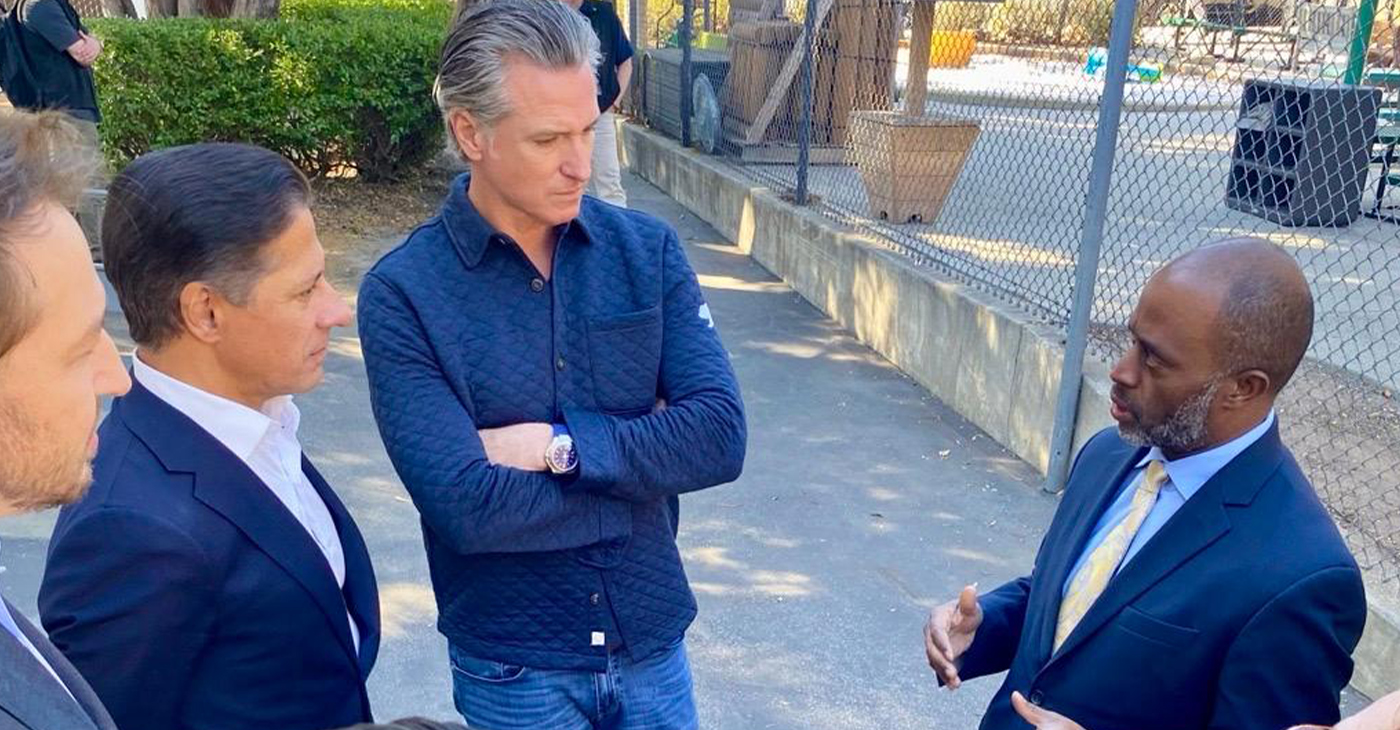
Tanu Henry, California Black Media
State Superintendent of Public Instruction Tony Thurmond last week visited several school communities in Southern California that have been severely impacted by wildfires.
His visit aimed to assess the damage, provide support, and secure essential resources for the recovery process. As wildfires continue to pose a significant threat to various regions, Thurmond’s says his actions reflect the commitment of the California Department of Education (CDE) to ensuring the safety and well-being of students, educators, and their families.
“Schools are the heartbeat of any community’s ability to recover as they provide stable and safe learning spaces for children,” Thurmond said. “That’s why our team has had boots on the ground since the beginning of this tragedy, and we are committed to remaining side-by-side with local leaders to assist in the recovery.”
During his visit, Thurmond met with local school officials, teachers, and students to understand their immediate needs and long-term concerns. He expressed his commitment to fighting for people affected by the disaster and assured them of the state’s unwavering support. Thurmond also emphasized the importance of mental health services, particularly for students who have experienced trauma due to the wildfires.
Thurmond announced that he has secured financial and logistical assistance to aid in the rebuilding and restoration of school facilities. This includes funding for temporary classrooms, educational materials, and infrastructure repair. The CDE says its goal is expedite the recovery process and minimize disruptions to students’ education.
Earlier in the week, Thurmond finalized a partnership between the CDE and Airbnb to provide short-term housing for school staff in the Pasadena Unified School District (PUSD).
The CDE has also partnered with the SupplyBank.org to collect and distribute critical resources to school communities. A similar agreement with curriculum providers and tech manufacturers will lead on the replacement of school materials damaged by the fires.
-

 Activism3 weeks ago
Activism3 weeks agoWe Fought on Opposite Sides of the Sheng Thao Recall. Here’s Why We’re Uniting Behind Barbara Lee for Oakland Mayor
-

 Activism4 weeks ago
Activism4 weeks agoSan Francisco Is Investing Millions to Address Food Insecurity. Is Oakland Doing the Same?
-

 #NNPA BlackPress4 weeks ago
#NNPA BlackPress4 weeks agoRev. Dr. Jamal Bryant’s Black Church Target Boycott Mobilizes 150,000
-

 Activism3 weeks ago
Activism3 weeks agoFaith Leaders Back Barbara Lee for Mayor, Criticize Candidate Loren Taylor for Dishonest Campaigning
-

 Activism4 weeks ago
Activism4 weeks agoOakland Post: Week of March 12 – 18, 2025
-

 Activism3 weeks ago
Activism3 weeks agoOakland’s Most Vulnerable Neighborhoods Are Struggling to Eat and Stay Healthy
-

 #NNPA BlackPress4 weeks ago
#NNPA BlackPress4 weeks agoRecently Approved Budget Plan Favors Wealthy, Slashes Aid to Low-Income Americans
-

 Activism3 weeks ago
Activism3 weeks agoGroup Takes First Steps to Recall District Attorney Diana Becton





